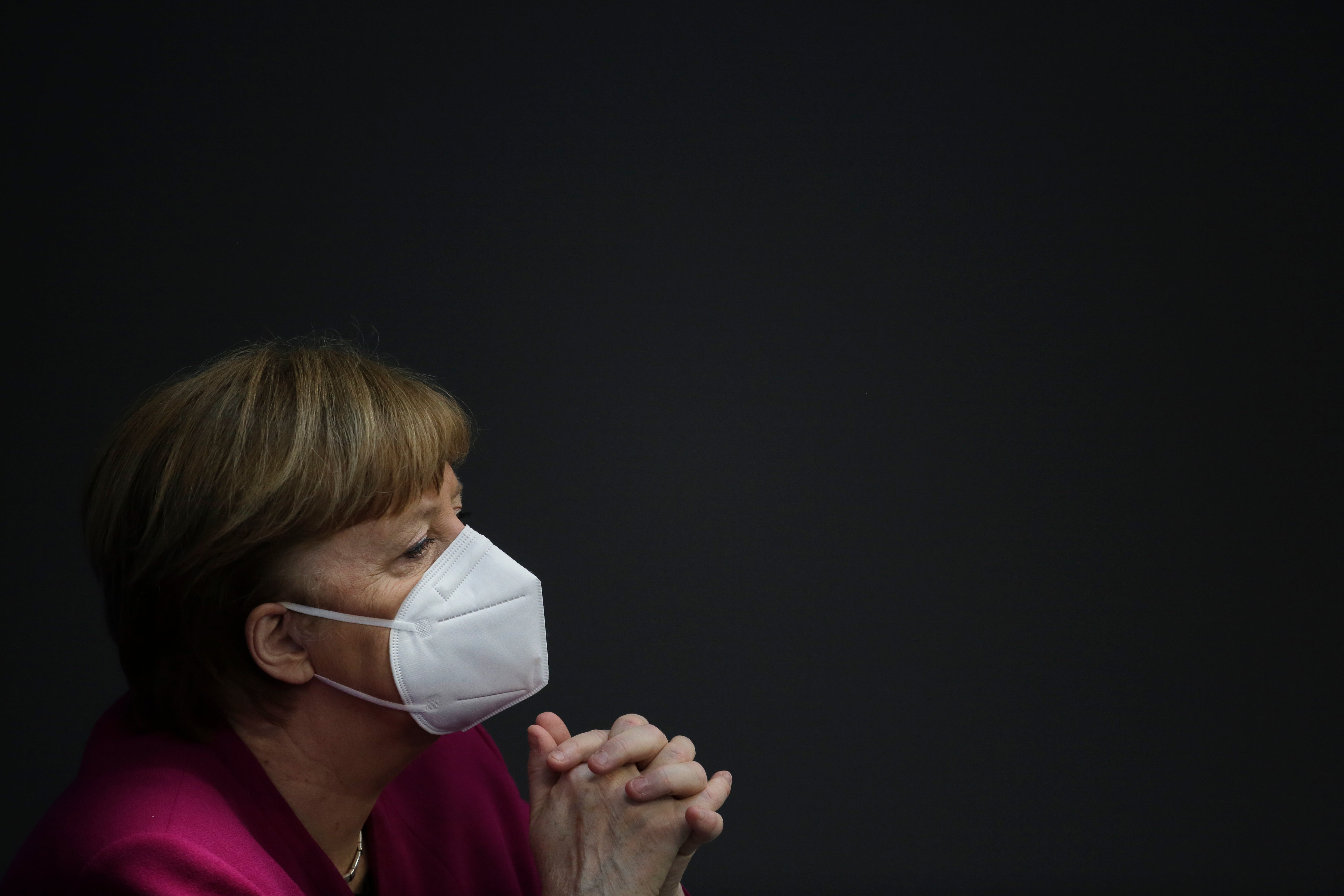EU leaders faced with surge of infections, vaccine issues
European Union leaders are meeting to look for ways to ramp up COVID-19 vaccinations across the 27-nation region amid a shortage of doses, spikes in cases, a feud with the United Kingdom and internal quarrels

Your support helps us to tell the story
From reproductive rights to climate change to Big Tech, The Independent is on the ground when the story is developing. Whether it's investigating the financials of Elon Musk's pro-Trump PAC or producing our latest documentary, 'The A Word', which shines a light on the American women fighting for reproductive rights, we know how important it is to parse out the facts from the messaging.
At such a critical moment in US history, we need reporters on the ground. Your donation allows us to keep sending journalists to speak to both sides of the story.
The Independent is trusted by Americans across the entire political spectrum. And unlike many other quality news outlets, we choose not to lock Americans out of our reporting and analysis with paywalls. We believe quality journalism should be available to everyone, paid for by those who can afford it.
Your support makes all the difference.European Union leaders are meeting Thursday to look for ways of ramping up COVID-19 vaccinations across the 27-nation region amid a shortage of doses, spikes in new cases, a feud with the United Kingdom and internal quarrels.
The coronavirus pandemic once again prevented the leaders from meeting in person, reflecting the poor epidemiological situation in the EU. The spread of more contagious variants of the virus has pushed hospitals in some countries to their limit, and combined with the lack of vaccines available in Europe, has led several EU members to impose strict lockdown measures over the Easter period.
Less than 5% of the EU's 450 million residents have been fully vaccinated against COVID-19. Ahead of Thursday's summit, the bloc's executive arm proposed strengthening export controls for coronavirus shots.
Even if the move is detrimental to non-EU nations, the European Commission s goal is to force vaccine manufacturers, especially AstraZeneca to deliver the doses agreed to in their contracts. The commission also wants to make sure a principle of export reciprocity is enforced with countries that are producing vaccines or the raw materials needed for them.
The mechanism has been divisive, according to various European diplomats who spoke before the summit. While some countries see it as an instrument of last resort that should not undermine the EU’s reputation as an open trading bloc, others said it is a crucial tool to guarantee doses and vaccine ingredients reach the bloc.
“Some countries refuse to export. So we need to introduce reciprocity criteria if we want to be able to keep our vaccination goal for the summer," said one diplomat, referring tot he EU's aim of having 70% of the adult population vaccinated by that season.
Stricter control of exports could have an impact on Britain, whose speedy vaccination rollout after it formally withdrew from EU has been eyed with envy by many European nations. The latest figures show that 45% of British residents have had at least one vaccine shot, compared to less than 14% for the EU.
The EU's contract disputes with British-Swedish company AstraZeneca deepened the post-Brexit tensions. However, the EU and the U.K. pledged this week to increase cooperation and fight Europe's third wave of infections together.
EU officials have said trade with the United States should not be affected by the mechanism. U.S. President Joe Biden has been invited to attend the virtual EU summit.
The leaders of EU member nations also need to settle an internal dispute after Austrian Chancellor Sebastian Kurz criticized the distribution of vaccines, saying that some countries were receiving more than their fair share. Austria —is leading a coalition of six countries asking for a correction mechanism.
Under the joint procurement set up by the European Commission, doses are allocated on a pro rata basis, but member states are free to place orders directly from the manufacturer of their choice. Some countries are taking less their pro rata base.
A large majority of EU members think the system is working well and said Austria made a mistake to focus on AstraZeneca shots instead of diversifying its portfolio. To help the countries struggling the most, member nations are examining ways to make efficient use of the 10 million additional doses of the Pfizer-BioNTech vaccine that were made available for the bloc for the second quarter.
“But the correction won't apply to all member states, only to those who really are in need of solidarity," a diplomat said.